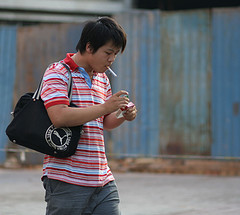 In the wake of the news that a Russian investment company had coughed up $200 million for a 2 percent stake in Facebook (and yes, that amounts to an estimated $10 billion value for the whole thing), and that Facebook itself had reached the coveted 200 million user mark (making it the 5th largest “country” in the world, no less), I thought it appropriate to have a look at how it is being used in the world beyond the college dorm and my living room.
In the wake of the news that a Russian investment company had coughed up $200 million for a 2 percent stake in Facebook (and yes, that amounts to an estimated $10 billion value for the whole thing), and that Facebook itself had reached the coveted 200 million user mark (making it the 5th largest “country” in the world, no less), I thought it appropriate to have a look at how it is being used in the world beyond the college dorm and my living room.
For to think that Facebook is only good for easy messaging, picture-sharing and spying (and yes, even self-discovery through such wonderfully insightful tests as ‘Which city would you be?’) would be a grave mistake indeed. Outside the world of highspeed broadband-lines and trendy presidential campaigns, Facebook is attracting more and more users from the fringes of the social-networking-society; from unexpected sources and people who cannot organize or interact on more traditional forums. It even has the Pope involved (but that’s a whole different story).
I present to you the flip-side of Facebook.


